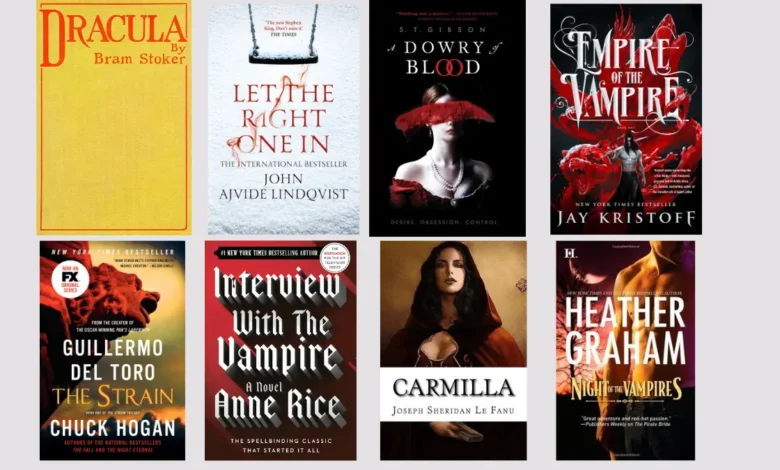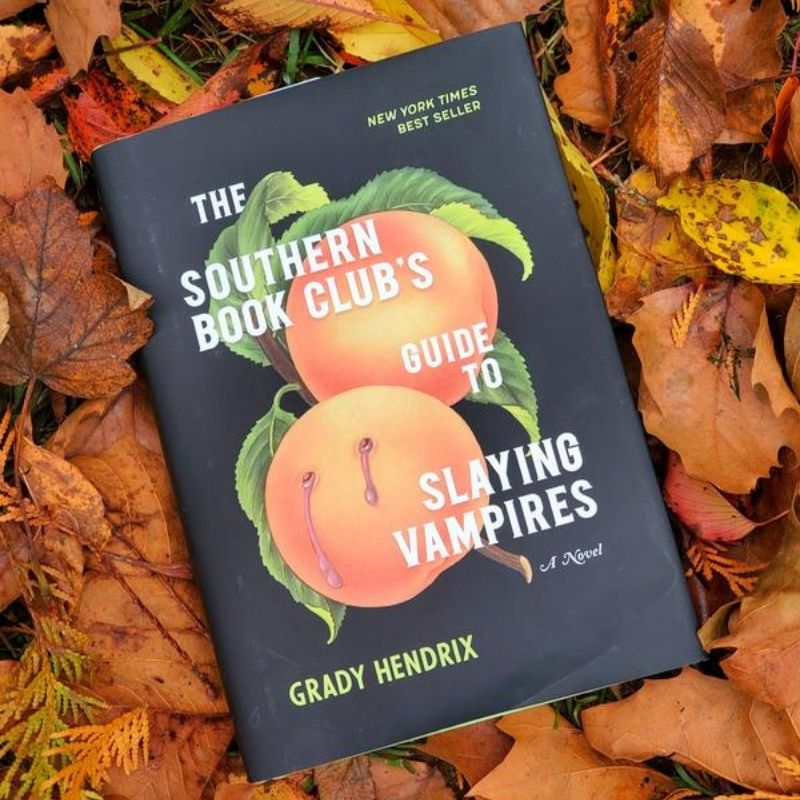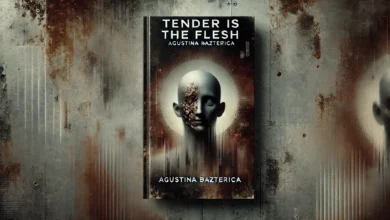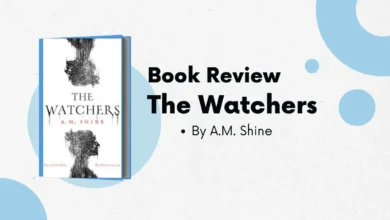Discover the Best Vampire Books to Read This Year

Introduction
Vampires have long been a symbol of fascination, danger, and eternal allure. From the seductive charm of Count Dracula to the tormented immortality of modern vampire protagonists, these creatures of the night have inspired countless stories in literature. Whether it’s their supernatural powers or their deeply human flaws, vampires have always had a way of captivating our imaginations.
Yet, with so many vampire novels flooding the market every year, it can be hard to separate the truly remarkable from the mundane. How do you find the gems among the endless list of books featuring bloodsuckers? With so many different takes on the genre, what should you prioritize in your next vampire read? Whether you’re a lifelong fan or just entering the world of vampires, choosing the right book can be a challenge.
In this guide, we’ve curated a list of the best vampire books to read in 2024, featuring everything from timeless classics to modern twists. We’ll not only highlight what makes each book unique, but also explore the themes, characters, and atmospheres that make them so compelling. So, prepare to dive into the dark, mysterious, and often morally ambiguous world of vampires.
Why Vampire Books Are Still Popular
Vampires have been a central part of the horror and fantasy genres for centuries, but why do they continue to capture our collective imagination?
- Immortality and the Fear of Death: At the heart of every vampire story lies the concept of immortality — the idea of living forever. This theme resonates deeply with readers, exploring the psychological and emotional toll immortality takes on the human soul. For centuries, the fear of death and the longing for eternal life have made vampires compelling subjects of fiction.
- The Duality of Vampire Nature: Vampires represent both the predatory and the victimized. They are creatures of great power and danger, yet they often face their own internal struggles — from feelings of loneliness to existential crises. This duality makes them intriguing figures that challenge our perceptions of good and evil.
- Rebellion and Otherness: Vampires are often outcasts, existing on the margins of society. They embody themes of rebellion, resistance, and defiance against societal norms. As outsiders, they grapple with identity, morality, and desire — issues that continue to speak to contemporary readers.
- Cultural Influence: Vampires have become an integral part of popular culture, with TV shows like True Blood, The Vampire Diaries, and Buffy the Vampire Slayer, as well as movies like Twilight and Interview with the Vampire. These adaptations have helped renew interest in the genre, with each new generation discovering the allure of the vampire mythos in its own way.
Top 5 Vampire Books You Can’t Miss This Year
1. The Last Vampire by Heather Graham
- Why it stands out: This novel blends paranormal horror with a modern-day crime mystery. Set in the hauntingly atmospheric backdrop of New Orleans, the story follows a centuries-old vampire who becomes entangled in a murder investigation. Graham’s ability to merge vampire lore with a gripping thriller makes this book a standout in the genre.
- Key Themes: Immortality, survival, vengeance, and justice. The book explores how centuries of living shape the emotional and psychological state of a vampire, especially when they confront the loss of someone close.

2. A Dowry of Blood by S.T. Gibson
- What makes it unique: This lyrical, darkly romantic novel presents a fresh take on vampire mythology, focusing on the toxic relationship between a vampire and her abusive creator. The novel is written in the form of a letter, making it an intimate exploration of love, trauma, and agency. It’s a captivating and poignant story that blends the supernatural with very real human emotions.
- Key Themes: Abuse, control, redemption, and freedom. It’s not just a vampire love story, but an exploration of power dynamics, self-empowerment, and the complexity of unhealthy relationships.

3. The Southern Book Club’s Guide to Slaying Vampires by Grady Hendrix
- Overview: This quirky, horror-comedy novel follows a group of Southern women who form a book club and inadvertently find themselves battling a vampire that has infiltrated their neighborhood. With its blend of humor and horror, it reimagines vampire mythology while tackling social issues like racism and gender roles.
- Why it’s a must-read: The combination of humor, Southern Gothic sensibilities, and horror makes this novel both thought-provoking and entertaining. It’s a perfect pick for those who enjoy a lighter take on the genre without sacrificing substance.
- Key Themes: Feminism, empowerment, small-town life, and societal norms. The book challenges traditional gender roles and offers a feminist twist on the typical vampire narrative.

4. Carmilla by Joseph Sheridan Le Fanu
- Why it’s significant: One of the earliest works of vampire fiction, Carmilla was published in 1872, predating Dracula by over 25 years. It’s also one of the first to feature a female vampire, establishing a precedent for the genre. The novella explores themes of lesbian desire and the dangers of forbidden love, making it a groundbreaking work.
- Key Themes: Sexuality, seduction, obsession, and female empowerment. It explores the blurred line between affection and predation, with a chilling, gothic atmosphere.

5. Empire of the Vampire by Jay Kristoff
- Why it’s a must-read: This epic fantasy novel reimagines the vampire genre with a fresh and imaginative twist. Set in a world where vampires have taken control and humans are on the brink of extinction, the book follows a reluctant hero as he embarks on a quest to save the world. Kristoff’s detailed world-building and fast-paced narrative make this an enthralling read for fans of both fantasy and horror.
- Key Themes: War, heroism, revenge, and the nature of good and evil. The book challenges the traditional notions of vampires as mere monsters, offering a more complex perspective on their place in the world.
Honorable Mentions: Other Great Vampire Books

- Interview with the Vampire by Anne Rice
As one of the most iconic vampire books of all time, Rice’s Interview with the Vampire offers a rich, philosophical narrative on the nature of immortality, the struggle with morality, and the complexities of relationships. Louis and Lestat are immortalized in literature as two of the most complex and tragic vampire characters ever written.

- Let the Right One In by John Ajvide Lindqvist
A unique and deeply unsettling tale, this novel combines elements of horror, coming-of-age, and psychological drama. It explores the unlikely friendship between a lonely boy and a vampire girl, tackling themes of loneliness, bullying, and societal outcasts.

- The Strain by Guillermo del Toro and Chuck Hogan
This fast-paced and terrifying series introduces a viral, apocalyptic take on vampires. With a blend of science fiction and horror, the trilogy is perfect for fans of zombie narratives who are looking for a vampire twist.

- Dracula by Bram Stoker
No list of vampire books would be complete without Dracula, the quintessential vampire novel that has defined the genre for over a century. Stoker’s exploration of the fear of the unknown, sexuality, and the clash between old-world superstitions and modernity remains deeply influential.
What Makes a Great Vampire Book?
While every reader has different tastes, there are a few qualities that define a truly exceptional vampire novel:
- Character Development: Great vampire books go beyond superficial thrills. They explore the psychological complexity of their characters, particularly the vampires themselves. Are they monsters or misunderstood beings? The best novels delve into their internal conflicts, desires, and struggles with morality.
- Atmosphere and Setting: A key part of any great vampire story is its atmosphere. Whether it’s a Victorian castle, a small town at midnight, or a dystopian future, the setting often serves as an extension of the vampire’s dark, mysterious nature.
- Themes of Humanity: Despite their supernatural nature, vampires often reflect the best and worst of humanity. Themes like love, obsession, identity, and power are central to vampire fiction, making them relatable on a deeply emotional level.
- Innovative World-Building: A great vampire story doesn’t just rely on familiar tropes. It creates its own unique rules for how vampires exist and interact with humans, making the world feel new and immersive. The best authors put significant effort into developing their vampire mythologies, creating a rich, immersive world for readers to lose themselves in.
New vs. Classic: Vampire Books That Defined the Genre
Classic Picks:
- Dracula by Bram Stoker: This is the cornerstone of modern vampire literature. It introduces many of the tropes that still define the genre, such as the charismatic yet evil vampire, the theme of sexual danger, and the exploration of the vampire as both a literal and metaphorical predator.
- Interview with the Vampire by Anne Rice: Anne Rice’s work revolutionized the vampire genre in the 1970s, introducing vampires who were not just evil but deeply human, struggling with existential questions and moral dilemmas.
Modern Twist:
- The Invisible Life of Addie LaRue by V.E. Schwab: While not explicitly a vampire novel, Schwab’s exploration of immortality through a woman cursed to be forgotten by everyone she meets brings the same themes of eternal life and the cost of such a curse.
How to Choose the Best Vampire Book for You
- Determine Your Mood: Do you want something dark and brooding, or something a little lighter and more adventurous? The vampire genre offers a range of tones, from gothic horror to dark comedy.
- Character vs. Plot: If you enjoy deep character studies, books like Interview with the Vampire and A Dowry of Blood will appeal to you. If you prefer fast-paced action and world-building, try Empire of the Vampire or The Strain.
- Themes of Power and Morality: Consider whether you’re more interested in vampire books that explore the monsters within, or those that focus on the human side of vampire existence. Some books focus heavily on the vampire’s internal moral conflict, while others are more about their predatory nature.
Conclusion
Vampire literature remains as thrilling, intriguing, and thought-provoking as ever. Whether you’re drawn to the darkness of the classics or the innovation of modern takes, this year’s crop of vampire books offers something for everyone. So, embrace the night and sink your teeth into one of these captivating reads. Your next great vampire adventure awaits.
Read More
Explore Book Review: Butcher and Blackbird by Brynne Weaver




